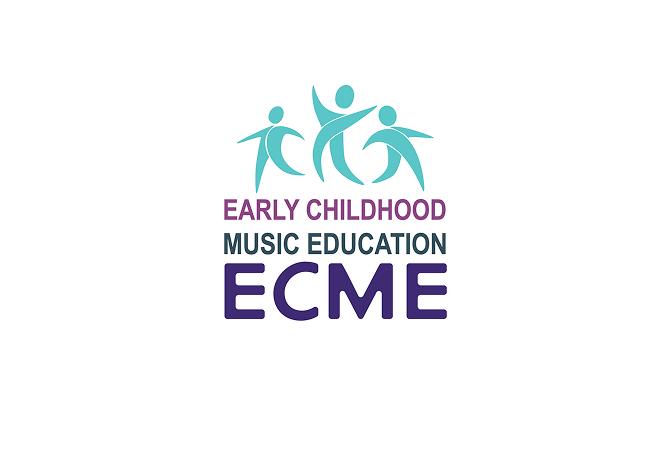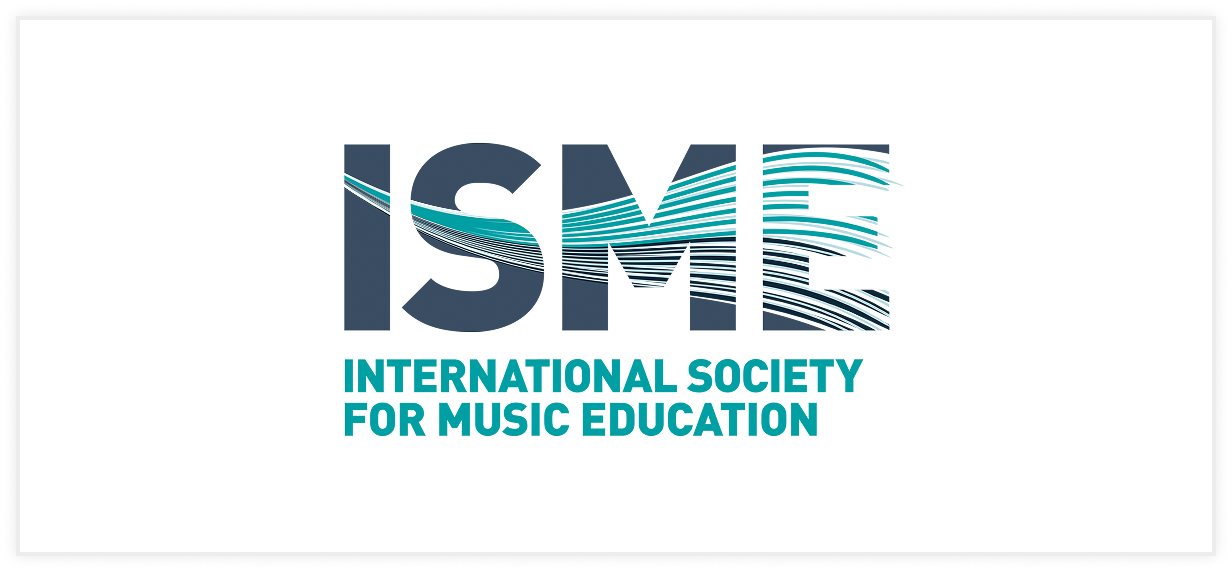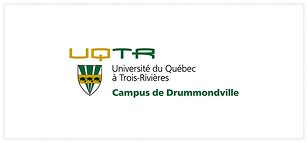EARLY CHILDHOOD MUSIC EDUCATION
21 - 24 July, 2026

Early Childhood Music Education
ISME Commission Pre-Conference Seminar
Call for Papers 2026
Theme
Dates
21-24 July, 2026
Venue
Université du Québec à Trois-Rivières in Drummondville
Drummondville, Québec, Canada
We cordially invite researchers and practitioners interested in the musical lives of young children (prenatal through age 8 years) to submit their work for a spoken research, theoretical, or practice paper, poster, demonstration, workshop, or symposium.
Purpose
The ECME Commission Pre-Conference Seminar provides an international forum for the exchange of ideas, development of dialogue, and collaboration among colleagues in research and practice, in order to support every child’s right to equitable and accessible music education and thereby enhance the quality of children’s lives.
As related to the 37th ISME World Conference theme, Unity in Music Education: Building Bridges for All, the theme for the 21st ECME Seminar will focus on Ecologies of Early Childhood Music. Subtopics are suggested but not limited to the following:
- Nurturing the young child through and with music within home, school, and community contexts;
- Collaborations with young children’s ways of knowing music and the musical relationships that arise from them;
- Interdisciplinary and multimodal approaches to ECME;
- Honoring cultural diversity in ECME;
- Influences of environmental factors on young children’s music making and learning; and
- Understanding teaching and learning ECME in formal, informal, and non-formal contexts as ecological systems.
As we look from our vantage point into the future of music in the lives of young children and in the world, we ask: What does it look like to fruitfully and beneficially nurture spaces for young children to experience and explore their personal musicianship, in connection to the diverse places within which they live and move, their communities and musical partners? How do environment and musicality interact to provide for rich spaces of well-being, personal expression, and communal interaction? How do we foster opportunities and maximize possibilities for every learner to engage in meaningful musical play and experience? By exploring how we as educators might provide nurturing environments for music making and learning in early childhood, we aim to understand the many roles and situations our youngest learners are faced with from day to day, and how music-making, learning, and teaching can be best supported throughout our communities.
The seminar will concentrate on examples of research and practice aimed at identifying, describing, and critically discussing aspects of the musical ecologies that are present in the lives of young children (defined as prenatal through age 8 years). Highlights of the seminar will be paper presentations, demonstrations, symposiums, posters, workshops, and performances presented by participants from all over the world. Additionally, participants will have opportunities to attend concerts, participate in song sharing, and enjoy cultural experiences specific to our host country, Canada, and the Province of Quebec.
Submission types at a glance
| Type of submissions | Abstract word limit | Duration (mins) | Max No. of Co-Presenters / Panelists | Max No. of Co- Authors |
|---|---|---|---|---|
| Oral Papers (not published in Proceedings) | 400 | 20 min + 5 min | 1 - 2 | unlimited |
| Full Papers (will be published in Proceedings) | 400 for abstract + 3000 for full paper | 20 min + 5 min | 1 - 2 | unlimited |
| Demonstration | upto 400 | 10 to 15 minutes | 1 | 1 |
| Posters | 400 Words | 3 min - 5 min | 1 - 2 | 1 - 2 |
| Workshops | 400 words | 50 min | 1 - 2 | 1 - 2 |
| Symposia | 800 words | 90 min | 3 - 6 | 3 - 6 |
Important Dates
Submission Deadline : Closed
Result notification : Dec 2025 / Jan 2026
Registrations will open : Dec 2025 / Jan 2026
Submission Guidelines
Multiple Submission Policy for ECME
- Number of Submissions per Author: Each author can submit one abstract.
- Number of Presenters per Abstract: Please check the table above.
Pathways to Publications for ECME
- All accepted abstracts will be included in the Conference Proceedings
- All accepted abstract titles will appear in the Conference Program
- All accepted Full Papers may be published in the Conference Proceedings
- Presenters of full papers may be invited to submit an article to the International Journal of Music in Early Childhood.
Pathways to 37th ISME World Conference, Montreal
Copyright Agreement
At the time of a Full Paper submission, presenters must indicate agreement with the following copyright conditions:
I hereby assign to the International Society for Music Education (ISME) copyright of the Full Paper I am now submitting for use by the Society in all formats and through any medium of communication if it is accepted for Publication in the refereed Pre-Conference Seminar Proceedings.
I understand that the Full Paper I am submitting will be refereed for possible inclusion in the Pre-Conference Seminar Proceedings and that it may also appear on the ISME website.
I confirm that the Full Paper is original and has not been published previously nor is currently under consideration elsewhere, that I have obtained all necessary permissions for the reproduction of content not owned by me (e.g., illustrations, photographs, charts, and other visual material, etc.), and that the Contribution contains no unlawful statements and does not infringe any rights of others.
I understand that I will retain copyright of the original submission for purposes of duplicating the Full Paper, placing it on my personal and institutional websites, etc., but will give ISME the first and exclusive rights to publish the ISME-formatted and edited version in print or online in ISME Conference or Pre-Conference Seminar Proceedings and/or journal.
I understand that if my Full Paper is not selected for publication in the Pre-Conference Seminar Proceedings, then upon such notification the copyright will revert back to me (the author).
Submission Types In Detail
Oral papers
- Oral Papers will be focused on projects or experiments in teaching in formal, informal, and non-formal learning contexts. Oral papers are less formalized than Spoken Full Papers and can be presented in any format.
- Oral Papers will be allocated 25 minutes, consisting of no more than 20 minutes for the presentation and a maximum of 5 minutes for questions and discussion.
- No more than 2 co-presenters are allowed; however, there is no limit on co-authors.
- Proposals should include:
- 15 words or fewer for paper title
- Up to 5 key words
- 400 word abstract:
- May include references, which will not be included in the word count
- May not include tables or figures
- Clear statement of justification for the work
- Clear description of project or experiment in teaching and learning
- Short discussion of theoretical context: must include references to literature
- Description of the participants (e.g., teacher/s, children, caregivers, etc.)
- Discussion of outcomes of the project (e.g., how did the participants engage with the project or experiment?, how did the author/s assess participants’ learning?, etc.)
- Discussion of implications for future teaching (e.g., how will the author/s expand the project?, how will they use what they learned to deepen children’s experience of musical engagement?, etc.)
- Abstracts for the Oral Papers will appear in the Conference Program and Proceedings.
Full Papers
- For people wishing to submit a full paper for consideration: papers can be on any aspect of research, teaching, or theory/philosophy in any context where musical engagement in teaching and learning may be found.
- Spoken Full Papers will be allocated 25 minutes, consisting of no more than 20 minutes for the presentation and a maximum of 5 minutes for questions and discussion.
- No more than 2 co-presenters are allowed; however, there is no limit on co-authors.
- Proposals should include:
- 15 words or fewer for paper title
- Up to 5 key words
- 400 word abstract
- May include references, which will not be included in the word count
- May not include tables or figures
- 3000 word full paper
- References should be added to the end of the document
- Papers may include no more than two each of tables and figures
- References, tables, and figures will not be included in the word count
- See below for heading requirements by paper type
- No specific format, such as APA, is required.
- All papers must be in the format of the Guidelines for Authors provided on the submission website.
- All papers will be fully (double-blind) refereed, and those chosen for inclusion in the seminar will be published in the Pre-Conference Seminar Proceedings.
- Authors of accepted presentations will also be invited to present their work as posters at the main ISME World conference at Montreal.
- NOTE: Full paper submissions that are not accepted for presentation as spoken papers at the Seminar may be considered for presentation as a Poster at the Seminar meeting. (This is not to be confused with the poster presentation at the main ISME World conference at Montreal.)
- Authors of accepted presentations may also be invited to submit a full paper to a special issue of the International Journal of Music in Early Childhood for consideration.
Required Full Paper Headings:
For Empirical papers:
- Clear statement of justification for the work
- Background
- Aims
- Method
- Results or Findings
- Conclusions
- Literature/References (not included in the word count)
For Theoretical papers:
- Clear statement of justification for the work
- Background
- Aims
- Main Contribution
- Implications
- Literature/References (not included in the word count)
For Practice papers:
- Clear statement of justification for the work
- Theoretical Background: Discuss the literature that supports your practice.
- Participants: Discuss characteristics of participants (number of children, ages); kind of educational setting (nursery, kindergarten, primary school, music school/lessons, etc.) or community (communities, child care center, family, etc.); time and place.
- Aims of the practice
- Method or pedagogical approach. (For example: Collaborative learning, individual or group work, self-initiated or led and/or adult-initiated or led, etc.)
- Activities: Describe the role of the teacher and participants
- Outcomes
- Reflections and implications for future work
- Literature/References (not included in the word count)
Demonstrations
- Demonstrations will consist of 10–15 minute presentations of practice-based approaches to ECME that highlight the presenter’s home culture.
- We invite short lessons, performances, presentation of teaching materials, or any other relevant practices that the presenter wishes to share with the general assembly.
- Demonstrations will be given at the start of each day’s session immediately after a short song-sharing activity.
-
Proposals should include:
- 15 words or fewer for demonstration title
- Up to 400 word abstract
- No more than 1 presenter and 1 author is allowed
- A description of the activity that will be presented, including clearly articulated cultural connections.
- References are not required for demonstration submissions.
- No specific format, such as APA, is required.
- Rhythm and other small instruments can be made available upon request at least 2 weeks before the first day of the Seminar; however, presenters are responsible for preparing and bringing all other teaching materials.
Poster
- Posters can be empirical, theoretical, or practice-oriented.
- Posters will be grouped into sessions that have designated time slots during the Seminar.
- Posters should be 36in. x 48in. / 92 cm x 122 cm in size. APA format is preferred.
- Proposals should include:
- 15 words or fewer for poster title
- Abstract of 400 words (excluding title and references)
- Description of aims, rationale, background, methodology
- If Research: Results
- Implications for practice in early childhood music education
- References, tables, and figures should be added to the end of the document and are not included in the word count
- No more than a total of two (2) tables and/or figures may be included
- No more than 2 co-presenters are allowed; however, there is no limit on co-authors.
- Titles and abstracts for the Poster Session will appear in the Conference Program and Proceedings.
Workshops
- Workshops should consist of demonstration of an empirical idea, educational practice, or methodology that offers play-based and child-centered strategies for those who engage with young children in music education. Workshops may also be defined as an interactive performance demonstration appropriate for audiences of young children, with the goal of engaging young children in musical experiences.
- Workshop Sessions will have designated time-slots, for a total of 50 minutes, consisting of no more than 40 minutes for the workshop, and 10 minutes for discussion.
- Proposals should include:
- 15 words or fewer for paper title
- Abstract of 400 words
- No more than 2 co-presenters are allowed; however, there is no limit on co-authors.
- Aims or objectives of the workshop
- Theoretical background and content
- Two sample activities: Briefly describe your presentation plan
- Implications for early childhood music education practice
- References, tables, and figures should be added to the end of the document and are not included in the word count.
- Submissions may include no more than two each of tables and figures
- Upload as a Table in JPEG format: A list of any workshops you have presented in the past few years (titles, dates, venues, number of attendees), if any.
- Including groups of children as participants in your demonstration can only be accomplished if all arrangements are organized by the presenter; the ECME planning committee cannot provide for this.
- Authors are responsible for ensuring that all necessary equipment is available. Submissions must therefore include a full description of the equipment and facilities needed.
Symposia
- In particular, we are interested in panel presentations geared toward the ECME theme, but submissions are not limited to this. Each Symposium will be led by a Convenor (panel chair) who will submit the abstract on behalf of all panel presenters.
- The submission must not include names of the panelists or convenor.
- Symposia will consist of 3–6 panelists.
- Symposia are to be 90 minutes, consisting of presentations and discussion.
- Proposals should include:
- 15 words or fewer for symposium title
- A single 800 word abstract submitted by the Convener
- A complete description of the format of the Symposium, including timetable, and roles of each participant (labeled as Participant #1, Participant #2, etc.)
- References, tables, and figures should be added to the end of the document and are not included in the word count. No more than a total of two (2) tables and/or figures may be included.
Submissions Closed
Important Information
Key Resources & links
2026 ISME Pre-Conference Seminar Guidelines
Event Partners / Sponsors


